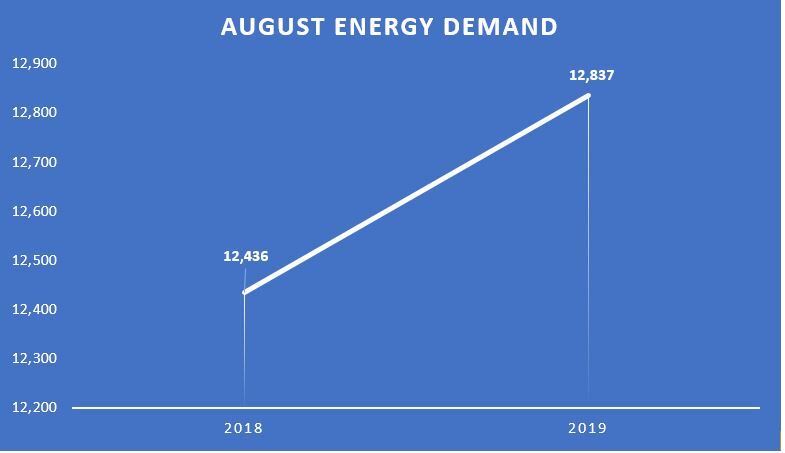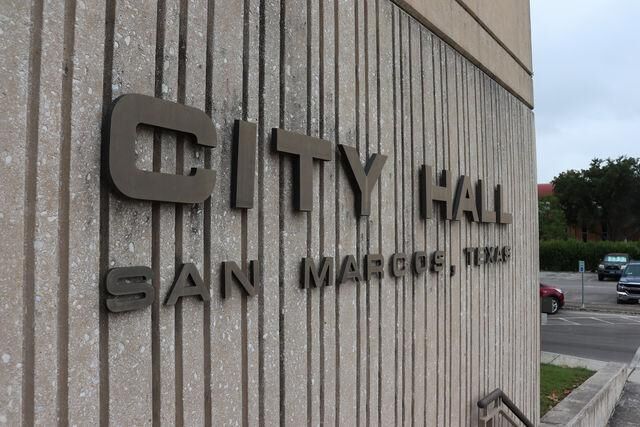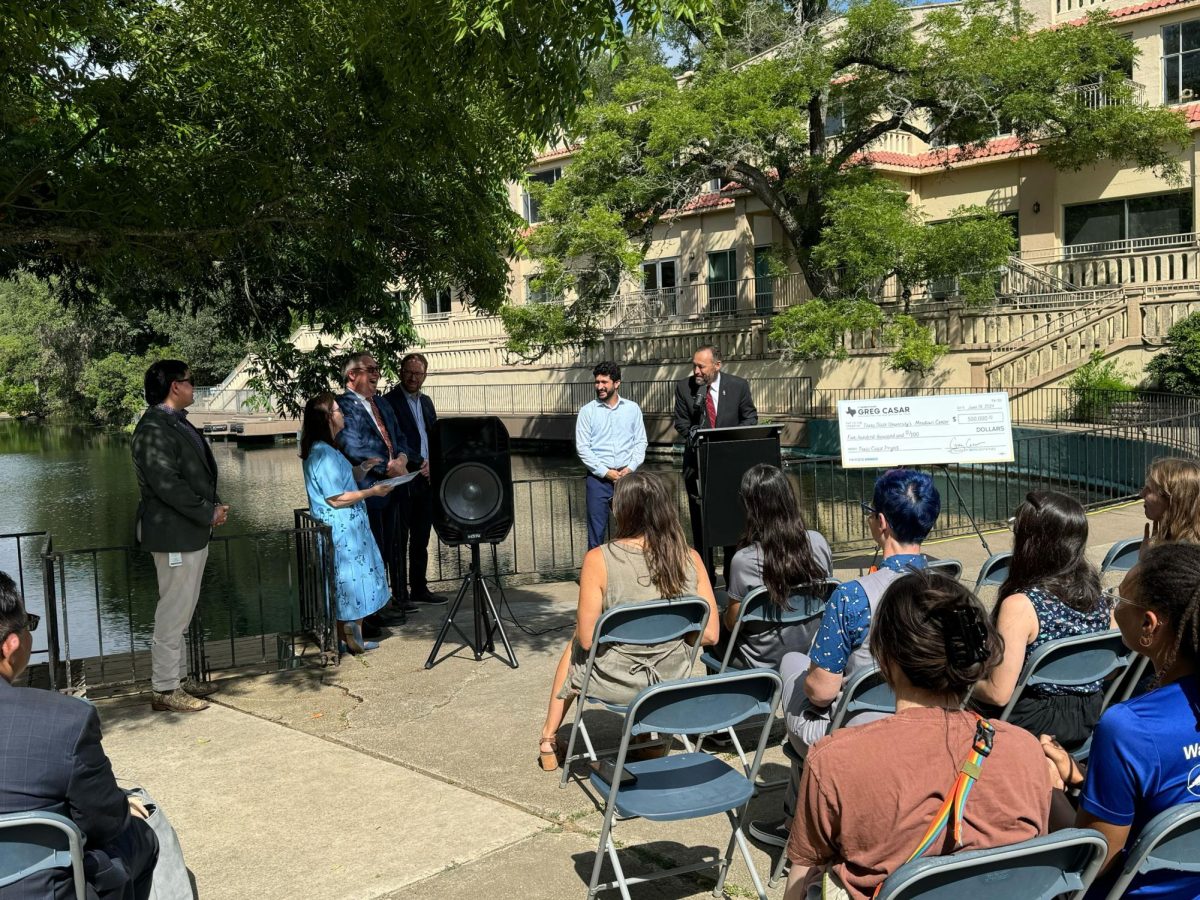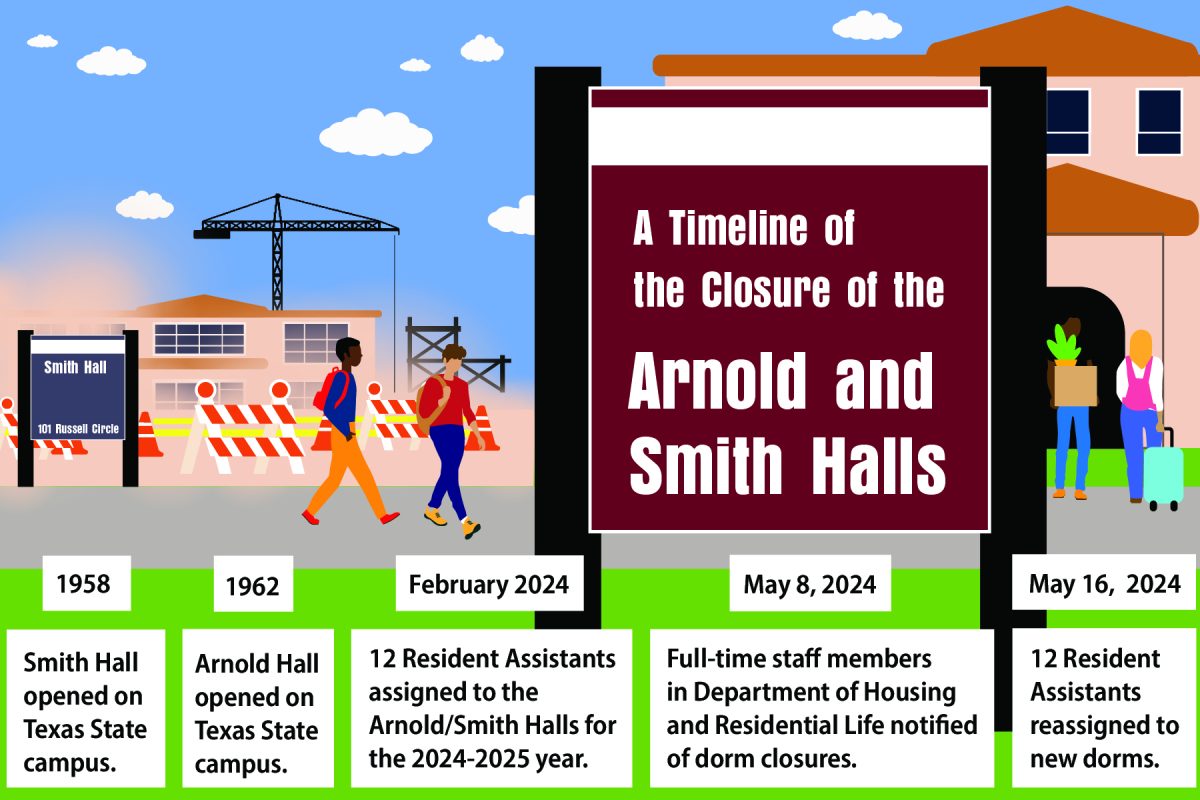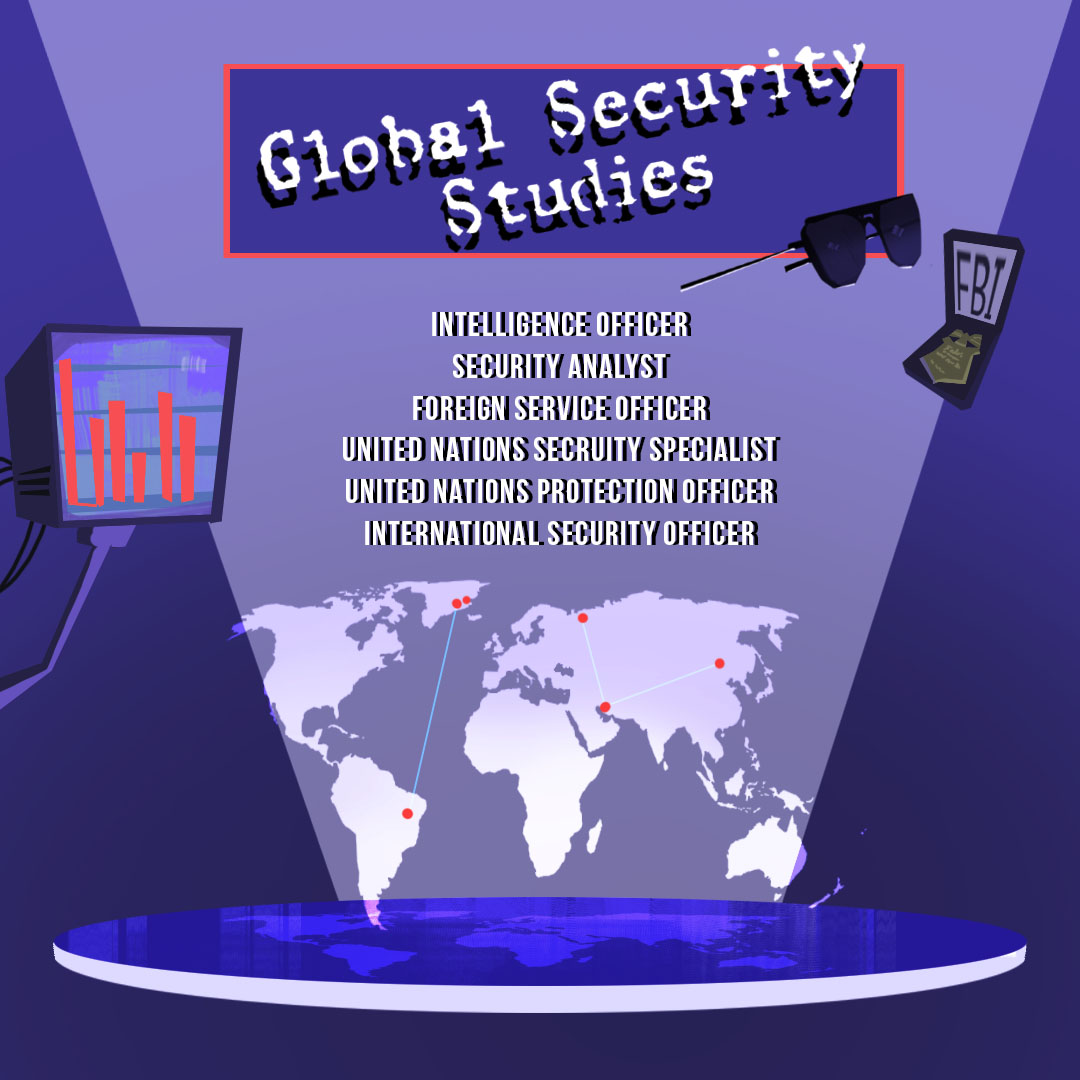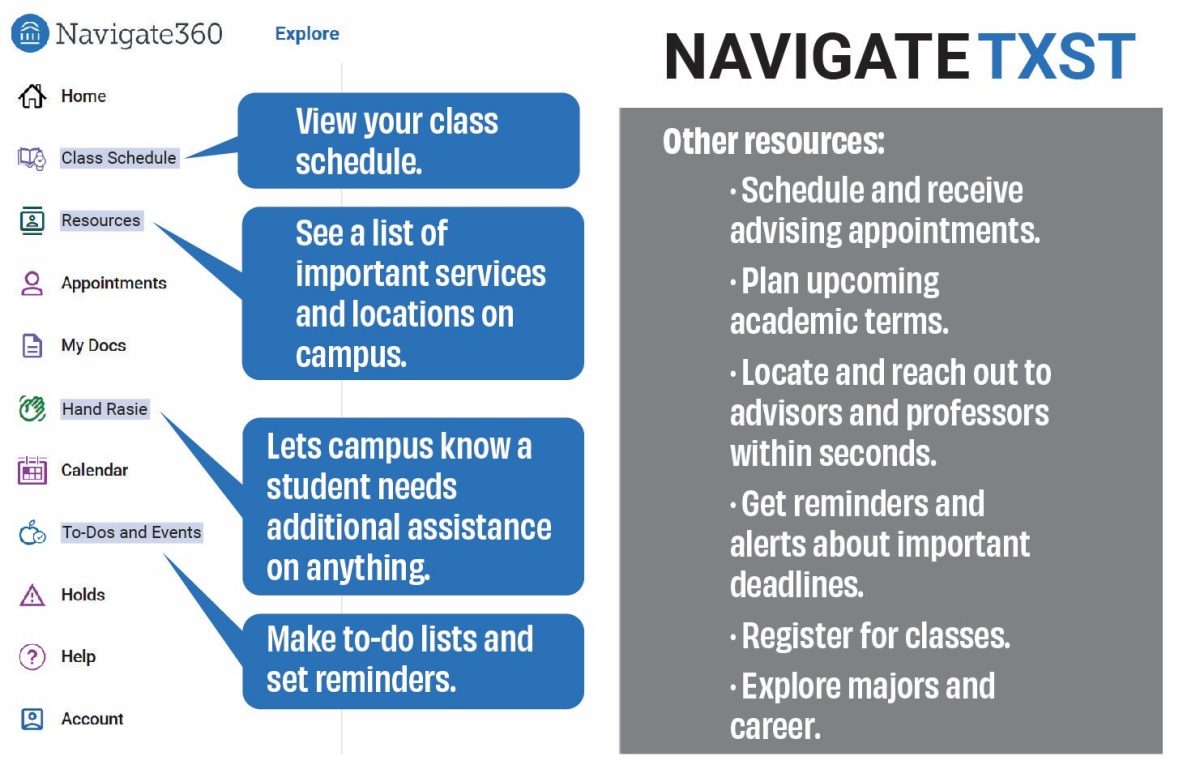Texas State officials are calling on students, faculty and staff to conserve energy as the blistering days continue and the demand for electricity increases.
The request from university officials was made in response to a memo from Texas Gov. Greg Abbott’s office outlining the Electricity Reliability Council of Texas’ electricity demand forecast. Demand has increased drastically over the summer, growing each consecutive month to its pinnacle in August. The extreme summer temperatures are the leading factor in the increase.
ERCOT, which manages the vast majority of the Texas electrical system, tracks electrical load demands across the state.
The South Central Weather Zone, which includes San Marcos, reached peak demand of 12,436 megawatts August 2018. The following month of the same year had the highest reading, which topped 11,000 MW.
For context, a capacity of one megawatt is roughly equivalent to the power used by a few hundred homes over a year, depending on the source of the power (e.g., solar, wind, coal).
The demand reached even greater levels during August 2019, stretching to 12,873 MW. San Marcos’ weather forecast shows a high probability of 90-degree days for the remainder of September; the skyrocketing demand is unlikely to decrease significantly.
Leslie Sopko, ERCOT communications manager, said the increase in demand is statewide and partially due to factors beyond the heat.
“The state of Texas continues to grow; we continue to see population growth and we have a thriving economy,” Sopko said.
To counteract the current heatwave and mitigate the effects of Texas’ growth to avoid potential rolling blackouts in the future, Thomas Shewan, associate vice president of facilities at Texas State, said it is crucial for students and faculty to adjust energy consumption habits.
“The weather has been so hot for so long, everybody is using their air conditioning, all the buildings are on, the lights are on, the projectors are on,” Shewan said. “It’s the citizens of San Marcos, it’s the students, faculty and staff members that can really help.”
Shewan said the university has taken steps, institutionally, to combat the problem. Energy-efficient light bulbs have been installed in various classrooms across campus, as well as timers in buildings to ensure the lights switch off after a period of inactivity.
The institutional response is crucial, as Texas State is the number one consumer of electricity in the San Marcos area. Shewan said the community responded well to the heightened demand last year and a small decrease in usage helped avoid any negative fallout.
“The university responded spectacularly (last year),” Shewan said. “Again, a 5% (decrease) doesn’t seem like a lot of energy, but when you use this much energy, 5% is a lot.”
Shewan said there are a few simple actions students and faculty can take to conserve energy in their own daily routines.
“Put your thermostat up a couple of degrees in the summertime and down a few degrees in the wintertime,” Shewan said. “When you leave (class), turn the projector off and turn the lights off.”
Hannah Holder, communications graduate student, said she is coping with the current heatwave with air conditioning and a fan.
“I have my thermostat set to 72 degrees and then my fan is on high in my room all the time,” Holder said.
Holder said she thinks she can sacrifice her fan and open a window at night to do her part in decreasing energy consumption.
Anyone with questions or concerns about energy conservation is being asked to contact the main Facilities office by telephone at (512) 245-2518.
Students and faculty asked to conserve energy
September 17, 2019
Donate to The University Star
Your donation will support the student journalists of Texas State University. Your contribution will allow us to purchase equipment and cover our annual website hosting costs.











